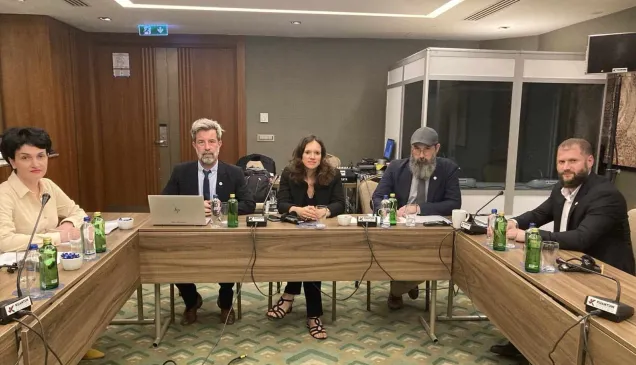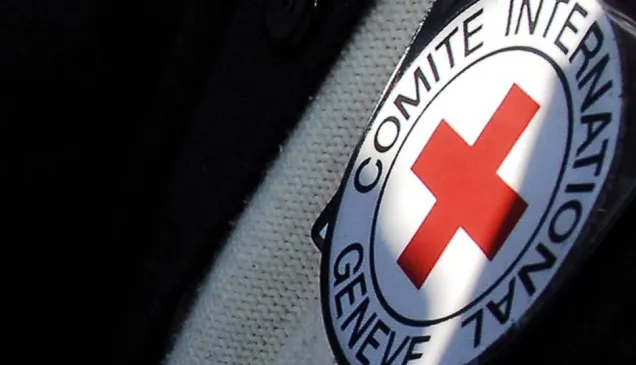Prime Minister’s Office and ICRC highlight plight of missing people and their families in Iraq
Baghdad (ICRC) – On 29 August, the Prime Minister’s Office and the International Committee of the Red Cross (ICRC) jointly hosted a homage to missing people and their families in Iraq at the Al-Mansour Theatre in Baghdad to mark the International Day of the Disappeared.
The event drew attention to the several hundreds of thousands of people who remain unaccounted for today in Iraq as a result of four decades of successive conflicts and periods of violence, and to the anguish and suffering that their disappearance continues to cause for their families. Hameed Al-Ghazi, the secretary general of the council of ministers representing the prime minister held the keynote speech at the event. Other speakers included Katharina Ritz, head of delegation of the ICRC in Iraq, Najeha Abdul Amir Al-Shammari, president of the Martyrs Foundation, Barvan Hamdi Hussein, deputy minister of Martyrs and Anfal Affairs, and Alice Walpole, deputy special representative for Iraq of the United Nations secretary general.
Iraq is one of the countries with the highest number of missing people, and practically every Iraqi family is personally affected or knows families who have missing relatives. The effect on families, who often live for decades in limbo and without concrete answers, is devastating. Families have to deal with economic, administrative, legal and psychosocial needs that are the direct result of the disappearance of a relative.
“People who have gone missing have different stories behind their disappearance. But the consequences on those they leave behind are similar,” said Katharina Ritz. “Countless times we have seen first-hand the heartbreaking effects of having a missing parent or a child; how desperate mothers struggle to provide for their children; and how families never cease their anxious search for information.”
“Iraqis have suffered for too long from the successive armed conflicts, the oppressive practices of the former regime, from years of violence after 2003 and from the terrorist crimes committed by Daesh,” the Prime Minister’s Office stated. “Too many lives have been lost, and countless families remain without news about their missing relatives. The Iraqi government will spare no effort to continue to look into the fate and whereabouts of these missing persons and to bring hope and support to their families.”
All families have a right to know the fate and whereabouts of their loved ones and while there is hope for finding answers, no matter how slim, the search should continue. Families should receive information on the whereabouts of missing relatives if alive or should be able to mourn them with dignity and in accordance with traditional practices if they have lost them forever.
A nationwide public awareness campaign on ‘the Missing’ was launched by the ICRC with a broad group of partners on 21 August, lasting for ten days until the International Day of the Disappeared. It relies on a wide range of information channels, such as TV and radio spots, an interactive social media campaign, information sessions and bulk SMS messages.
For more information, please contact:
Salma Oda, ICRC Baghdad: +964 790 191 69 27 – soda@icrc.org
Sahar Tawfeeq Sulaiman, ICRC Baghdad: +964 770 271 1274 – sessa@icrc.org
Avin Yassin, ICRC Erbil: +9647719945066-avyassin@icrc.org
Follow the ICRC in Iraq on:
- www.facebook.com/ICRCIQ
- www.twitter.com/ICRC_IQ
- www.instagram.com/ICRC_IRAQ



